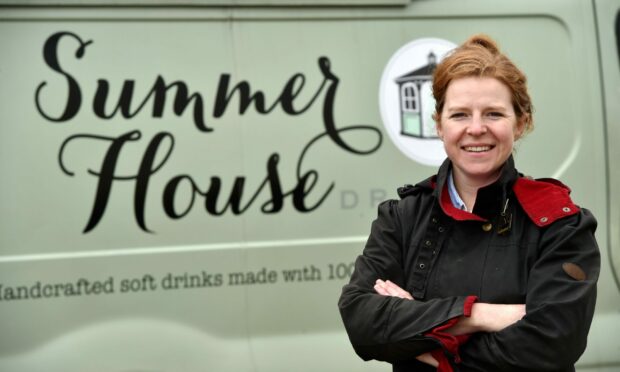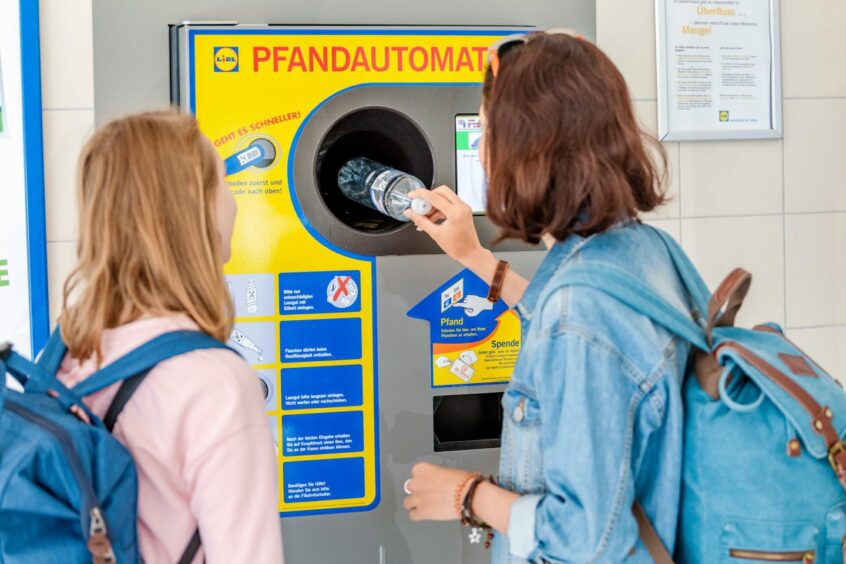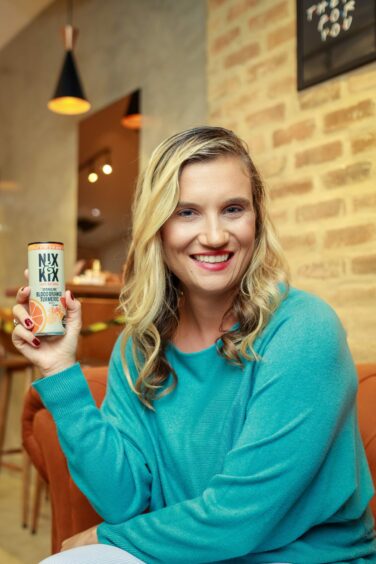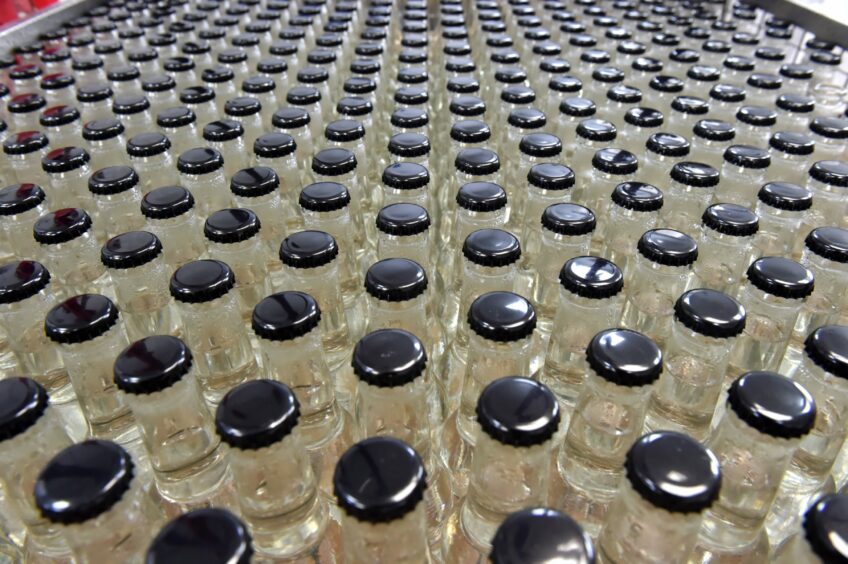As the owner of a small soft drinks company in Fraserburgh, Claire Rennie knows next year’s introduction in Scotland of the Deposit Return Scheme is going to hurt.
Admin costs, required pre-payments of deposits and a £360 registration fee are all coming at a time of heightened financial insecurity.
“It’s going to have a major impact on our business,” Claire says.
But she also worries about how it will affect the people that buy her drinks. They are the ones that will suffer when Claire, inevitably, raises her prices to absorb the extra costs.
That’s on top of other cost increases for drinks makers such as sugar, carbon dioxide and flavouring ingredients.
“I can’t see any producer at the moment, with the way everything is going up in price, be able to take those pennies out of their margin,” Claire says.
Hurtling towards a reckoning
Scotland is nine months away from the launch of the Deposit Return Scheme that will transform the way we recycle our drinks bottles.
When it arrives on 16 August, all drinks containers – aluminum, plastic and glass – will have a 20p deposit included in their price.
That deposit is recouped when the bottle is taken to one of thousands of special collection points at supermarkets and other shops around the country.
Many of the collection points will be so-called ‘reverse’ vending machines that swallow up the bottle in return for your deposit.
The aim of the system is laudable – to improve recycling rates, increase the quality of recycled plastic and reduce litter.
But there is a growing number of people who believe that even though the scheme has already been delayed because of COVID, the implementation process is moving too fast and without adequate consultation.
Scotland, they believe, is hurtling towards a reckoning.
“On the 16th of August, overnight, everything will go up in price,” says Blair Bowman, a whisky consultant and broker who is highlighting what he sees as fundamental flaws in the deposit return scheme.
The flaws, he says, will see small drinks businesses “probably crumble” as the requirements for DRS overload already stretched finances.
Building a DRS border wall with England
There are other considerations.
Significantly, the scheme will be the first of its kind to launch in the UK.
Many other countries including Germany and Denmark have had a DRS for years. But Scotland, thanks to strong support from the Scottish Government, will lead the way on the British Isles.
This is a point of pride for Circularity Scotland, an amalgam of big drinks producers and industry trade groups that is overseeing the scheme.
“Scotland is proud to be the first UK nation to embrace the idea,” the group’s website says.
Critics of the scheme see it another way. According to them, the erection of a DRS border wall with England will equate to fewer drinks making it on to Scottish shelves.
“There will be a reduction in options,” says Claire, who is considering cutting back on the flavours she sells in Scotland to keep costs down.
“There’s so many businesses that have said they’re going to have to stop trading in Scotland, because it just doesn’t work for them commercially,” Blair adds.
The benefits of Germany’s DRS
Nix and Kix is one company facing the challenge of DRS.
The London-based maker of natural soft drinks flavoured with a hint of cayenne pepper counts Scotland as its best-performing UK market, so is not about to ditch it.
However, CEO Julia Kessler, who has just launched new Nix and Kix drink Vitamin Vitality, has reservations about scaling the DRS border wall.
“It’s a United Kingdom,” says Julia,. “But when it comes to the implementation of things like the deposit return scheme, it’s not united.”
Meanwhile, Julia, who is originally from Germany, sees another problem with DRS in the UK – a lack of storage space.
Germany has had some sort of bottle deposit since the 1920s and its current system came into effect almost two decades ago in 2003. The system has since become ingrained.
But as Julia points out, most homes in the country – even small apartments – have either a cellar or a basement storage room where people keep bottles before taking them for recycling.
And while Germans are accustomed to weekly trips to supermarket deposit machines, Scots will have to adapt away from the kerbside pickups they currently rely on for recycling.
“Once people hear about how they’re not going to use their kerbside recycling any longer, that they’re going to have to lug their bottles to a supermarket or to a shop… they’re just not going to do it,” says Blair.
Breaking in a new routine
A common complaint about DRS in Scotland is that not many people know about it.
That is likely to change over the next few months as Circularity Scotland ramps up an awareness campaign prior to the launch date next August.
The group is confident its low-key public profile is the right way to approach the upcoming changes.
It does not want people hoarding bottles ahead of the DRS start date because bottles currently don’t carry the DRS barcode labels that will automatically return deposits.
For now, Circularity Scotland’s focus is on the people that will help administer the scheme.
“We are working closely with producers and retailers to help them prepare for when the scheme launches and establish a network of return points in every corner of Scotland so that consumers will be able to easily return containers or have them collected, wherever they are,” a spokesperson for the group says.
Meanwhile, others are confident that once DRS becomes part of people’s routines in Scotland, any sharp edges will be smoothed out.
Rob Hallworth, a senior client analyst for Nielsen, has been looking at the implementation of DRS in Scotland.
He says: “People will get used to it, like the way people have become used to recycling and taking plastic bags back to the supermarket.”







Conversation